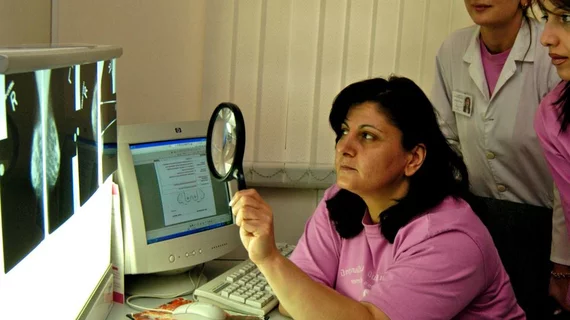AI program to advance microscopic image analysis
Fimmic, a Finland-based medical software company, is offering researchers and pathologists free access to its AI platform in an effort to advance the implementation of the technology in microscopic image analysis.
The company recently launched its aiForward program, which allows medical researchers to experiment with deep-learning and AI-based technology on research projects that involve microscopic analysis of pathological or histological sample images.
“The aiForward program is all about putting AI into the hands of medical researchers and pathologists. It is about moving AI forward, from vision to practice, and facilitating new discoveries in medical sciences,” Kaisa Helminen, chief executive officer of Fimmic, said in a prepared statement.
Researchers selected for the program will receive open access to the company’s cloud-based, AI tool Aiforia Create and support from its AI experts. The program is interested in research projects that focus on cancer, neurology, infectious or lifestyle diseases.
“We believe that AI holds immense potential for medical research and is about to revolutionize the field of medical image analysis,” Helminen said. “We want to make AI available for scientists that are working hard to discover disease mechanisms or developing new treatments for diseases that affect people around the world. Our aim is to build a community which fosters open communication and networking in the field of image-based analysis and research. It is really about bringing AI forward.”

